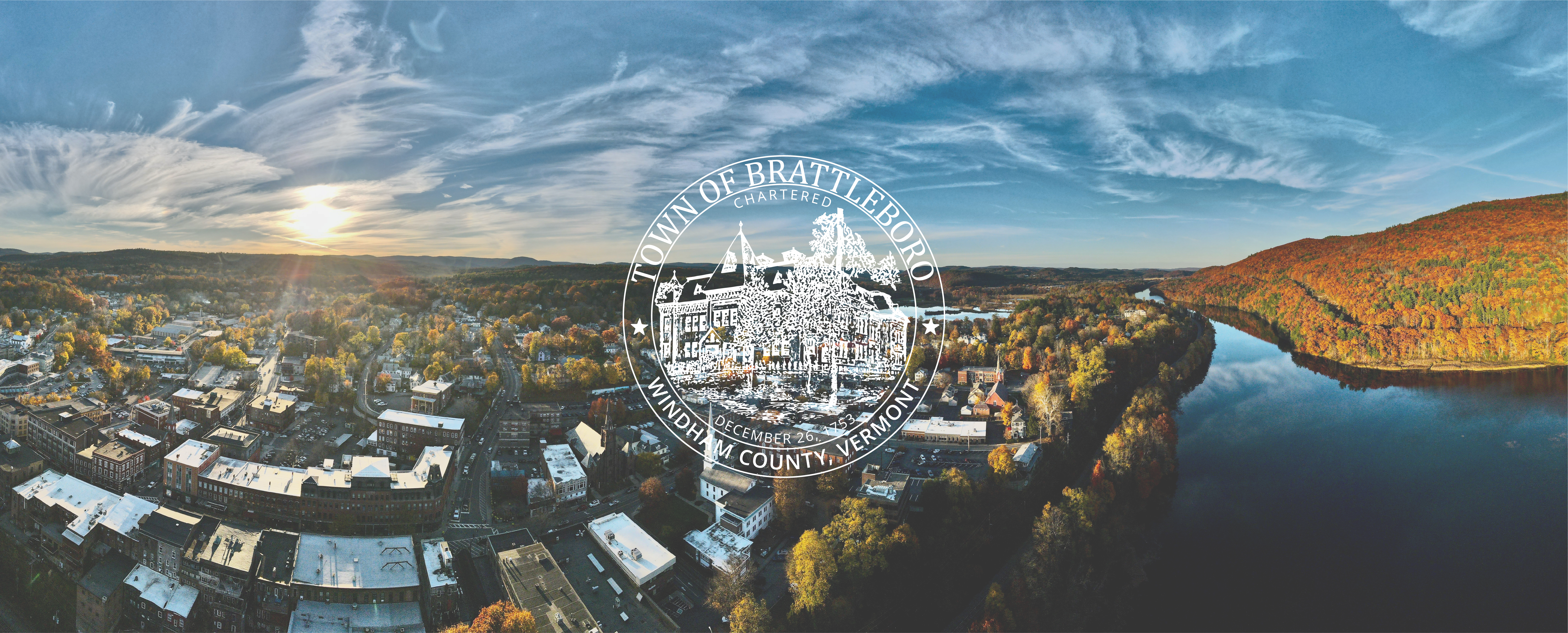
Zoning and Guidance for Emergency and Informal Sheltering
Emergency Shelters
There are currently four approved emergency shelters in Brattleboro, all in residential areas. The Land Use Regulations allow for emergency shelters in many zoning districts, generally as a conditional use. Under new state regulations, use of conditional use review for shelters may be restricted. Town regulations do not have a specific definition for emergency shelters, but the Department of Housing and Urban Development defines them as “[A]ny facility, the primary purpose of which is to provide a temporary shelter for the homeless in general or for specific populations of the homeless and which does not require occupants to sign leases or occupancy agreements.” Conditional use applications are heard and approved by the Development Review Board (DRB). The Board looks at the capacity of the land to sustain a use. This includes the preservation of privacy for property users and abutters; conformance to performance standards which regulate nuisance, including runoff, odor and noise; and impact on municipal services, including increased demand or inadequate access for Police, Fire and EMS.
Emergency shelters must:
-
Respect the need for privacy for neighbors and users of the shelter.
-
Be served with safe electric, water, and waste water service.
-
Not create nuisance, including very loud noise and improper disposal of human waste.
-
Operate in way that does not create unreasonable demands on Police.
-
Meet life safety codes, see Town Ordinance 8, Section 8-42.
-
Be accessible to Police, EMS, and Fire response.
-
Meet site plan requirements for parking, access, setbacks, and lighting.
A property owner must apply for and receive a permit prior to establishing an emergency shelter. A viable application will have reasonable provision of sanitary facilities, be maintained in an orderly condition so as not to burden municipal services and neighbors, and provide residents with reasonable privacy and safety. An emergency shelter use is likely to require a state wastewater permit; property owners should consult a certified wastewater system designer.
If an emergency shelter is created without a permit, the Zoning Administrator will issue a violation notice and invite the landowner to cure it by signing a stipulation requiring a DRB application, cessation of the use if the application is denied, and implementation and maintenance of all conditions, if the application is approved.
If the governor declares a housing state of emergency, it is possible some state regulations could be waived, modified, or expedited.
Potential Other Scenarios (Informal Sheltering)
Informal shelters are a range of temporary arrangements that are sometimes outside the definition of land development, that is arrangements that do not require a zoning permit. The use of vehicles, tents, or non-residential structures may be informal shelters. As examples:
-
A vehicle or RV is parked in a public right-of-way: In the past Planning has found that this is not considered land development under the land use regulations. The vehicle must conform to parking regulations, be registered and roadworthy. Public health must be maintained. Other Town ordinances remain in effect.
-
A homeowner allows a tent or small number of tents on their property without rent or consideration on some temporary basis: This is exempt from the land use regulations so long as sanitary conditions are met and the use does not create impacts on neighboring properties that are not typical of residential use. Normal conversations, gatherings, use of residential power tools, and residential lighting are examples of normal impacts on neighbors.
Tenting would be treated as an expansion of a permitted residential use. Placing tents is not land development if it does not extend the residential use beyond what’s generally understood as reasonable for a residential parcel. A rule of thumb based on wastewater permitting would be 6-8 persons in total for the primary structure and any accessory structures, combined. A zoning violation would be issued if the use did not meet performance standards. The state may require a demonstration that wastewater capacity is adequate or may require a wastewater permit.
-
A homeowner allows a vehicle or RV to be parked on their property without rent or consideration: This is allowed on a temporary basis with a permit. The vehicle must be parked to the side or rear of the home. Sanitary conditions must be met to avoid a private or public health violation. Any electric or water connections must meet code requirements.
-
A homeowner allows use of a garage, shed or other structure for habitation: This can be allowed with a permit and life safety inspection. There are grant funds available for permanent conversions to an accessory use, which is the recommended course of action.
The Land Use Regulations establish a reasonable balance between managing negative impacts to neighborhoods while allowing maximum flexibility for emergency housing. Maintaining that balance will require a cooperative relationship between the property owner, their neighbors, and the Town. When a property owner seeks out a positive engagement with the Town, they can quickly and effectively mitigate negative impacts. Enforcement would follow if that proves not to be the case.
For more information and to comply with this guidance, please contact Brian Bannon at [email protected] or at 802-251-8111.

